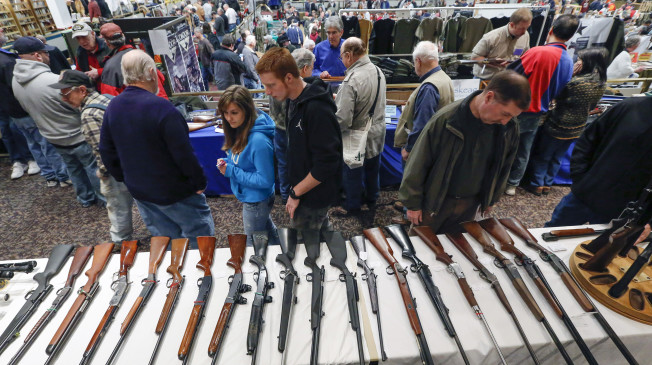
As has been covered here and elsewhere the recent President Obama push for his vision of “gun control” includes re-defining several key terms both in the National Firearms Act (NFA) that will impact trusts [See “The latest from the White House on “gun control”] and now also who, in their view, must become a Federal Firearm Licensee (FFL) under its interpretation of Section 921, 922, and 923(a) [the so-called “background checks and a license for gun sellers, regardless of location” interpretation].
A FFL is someone who has gone through the formal process with the BAFTE that will give them permission to be in engaged in the business of buying or selling firearms. There are different types of FFLs. [We will cover that in another post.] The process is not altogether difficult, but it can be daunting for the first time applicant. We can help you in that process, if you want.

(An example of an FFL01 license. Photo credit Ammoland.com)
The way it was:
Prior to the administration’s efforts, it used to be that Pennsylvanians who were engaged in occasional sales of long guns or in medium volume of long guns [frequently called “the weekend gun show warriors”] at smaller venues such as table shows would be able to sell their long guns without being an FFL. These good folks would typically have full time jobs during the week and set up a table at the table shows [or simply walk around a show] selling long guns at a small margin to supplement their income.
The future:
The Obama administration in its gun control efforts has announced its intent to try to force as many small time occasional and medium volume gun sellers to be licensed as FFL. Who has to be licensed? Well the Attorney General and the BAFTE has not set up a bright line rule. Instead, it is vaguely termed as “those who are engaged in the business” of selling firearms with a comment referring to a notorious court case that found that a person who sold only two firearms was found by the court to be “engaged in the business” of selling firearms. Does this mean that everyone who sells more than two firearms in their lifetime needs to have a FFL or they run the risk of prosecution? No. Under the current case law several factors determine whether or not someone is “engaged in the business” of selling firearms. Such factors include but are not limited to such questions as: (1) how long has the person been selling firearms? (2) How much profit is the person making per transaction? and (3) Is this the person’s sole source of income? What percentage of the person’s income comes from these sales? It is a very scary proposition as there is no bright-line rule. The potential for abuse by the FBI or ATF is large. The possibility of unequal treatment is also large. Perhaps that is what the administration wants to scare as many “weekend gun show warriors” into becoming FFLs as prudence would dictate that one err on the side of now becoming licensed. But shortly, this will become our new reality.
Given the administration’s announced priority as follows:
The White House also wants to hire 200 new investigators and agents at the Bureau of Alcohol, Tobacco, Firearms and Explosives (also part of Justice) to help enforce gun laws, including the measures Obama announced. One of the major “new actions” requires background checks and a license for gun sellers, regardless of location. The move is designed to clarify the current language on the books to close the so-called loophole associated with sales at guns shows and online.
You can bet that we will start to see more agents in plain clothes at table shows developing evidence to try to prosecute those who the administration believes has crossed that undefined line and is “engaged in the business” of selling firearms. They will watch you, track your transactions, and look at the prices you are offering the firearms for and perhaps even buy the firearms from you to try to establish that you are in deed “engaged in the business” of selling firearms.
So what does the smart law abiding “weekend gun show warrior” do? Well, the smart one examines this newly sparked and determines the risk of prosecution versus the potential profit. The risk has suddenly massively shifted with this new announced effort by the Obama administration.
If you are interested in becoming an FFL, please feel free to contact us. We can help.
______
*The term “firearm” is used throughout this blog post. As readers of this blog likely know the term “firearm” has a particular meaning under Pennsylvania law. Under the Uniform Firearms Act, the term “firearm” is more or less defined as modern handguns (as well as SBRs and SBSs). In this blog post the term “firearm” is meant in the broader non-Pennsylvania sense that includes all forms of projectile firing weapons.
** It is important to remember that in Pennsylvania the “private party sale” involving long guns does not require a Federal Form 4473 or a background check provided that both the buyer and the seller are not FFLs. However, in Pennsylvania even for a “private party sale” for “firearms” meaning pistols and revolvers require a background check (typically through either an FFL or the Sheriff’s Office) must be performed (unless it is between spouses or among parent and child).
